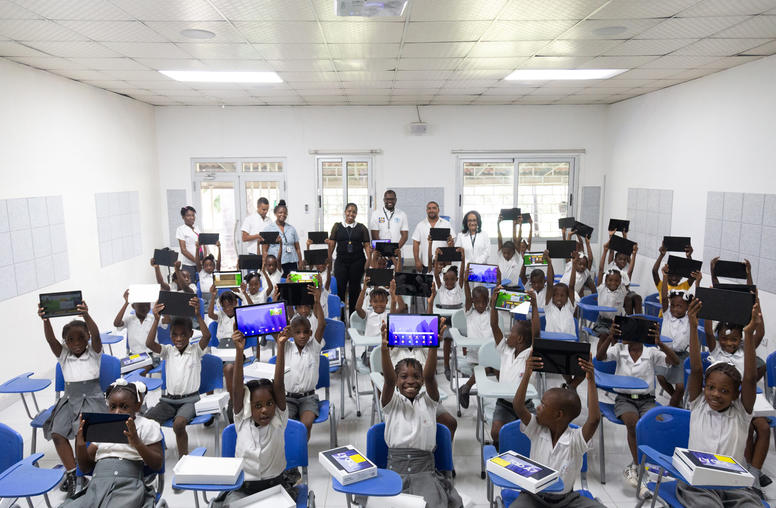Haiti in Waiting
Former USIP Jennings Randolph Peace Scholar Louis-Alexandre Berg, who recently returned from a trip to Haiti, provides an update on the political situation and Haitian President Michel Martelly’s plans to rebuild the conflict- and disaster-prone country.
September 22, 2011
Former USIP Jennings Randolph Peace Scholar Louis-Alexandre Berg, who recently returned from a trip to Haiti, provides an update on the political situation and Haitian President Michel Martelly’s plans to rebuild the conflict- and disaster-prone country.
On October 12, join USIP, Berg, Rolling Stone journalist Janet Reitman and others for a panel discussion on “Conflict, Cops and Recovery in Haiti.”
- What is the latest news on the stalemate between President Martelly and the Parliament?
- What can we expect from President Martelly once he has formed a new government?
- After four months of political impasse, what is the public’s opinion of President Martelly?
What is the latest news on the stalemate between President Martelly and the Parliament?
The Chamber of Deputies unanimously approved President Martelly’s third nomination for prime minister over the weekend. The nomination now goes to the Senate, where it is expected to be approved. Reactions to the nominee, Dr. Gary Conille, are mixed. A physician and resident coordinator for the UN Development Program in Niger, he has been praised for his experience, but has drawn criticism for being too close to the international community.
What can we expect from President Martelly once he has formed a new government?
President Martelly’s team is preparing to take some key steps once a government is formed, particularly in his priority areas of education, employment, the environment and the justice sector. These steps include providing free schooling to nearly 150,000 new students this school year, filling the six vacant Supreme Court positions, establishing the Supreme Council of the Judiciary, and moving the draft criminal procedure code reforms toward adoption.
After four months of political impasse, what is the public’s opinion of President Martelly?
Despite receiving initial widespread public support following his May inauguration, the president has more recently been criticized for some of his proposals and how he has handled Haitian politics so far. He has done a far better job of communicating with the public than his predecessors, yet he has also failed to build sufficient political consensus around his proposals, and successfully negotiate with factions and interests outside of his party. The difficulty he had faced in getting approval for his prime minister nominee highlights the challenges he will face in securing sufficient parliamentary support to advance his ambitious legislative and policy agenda.
As they wait for the new government to be formed, people are generally adopting a “wait and see” attitude. The president has begun putting initiatives in place in several sectors and designating top officials to lead them, but he must wait to form the government in order for most of these actions to move forward and become visible to the public. The bottom line is that everyone is waiting for the new government to be approved.
Explore Further
- Conflict, Cops and Recovery in Haiti
USIP Event | October 12, 2011 - Countries and Regions: Haiti


